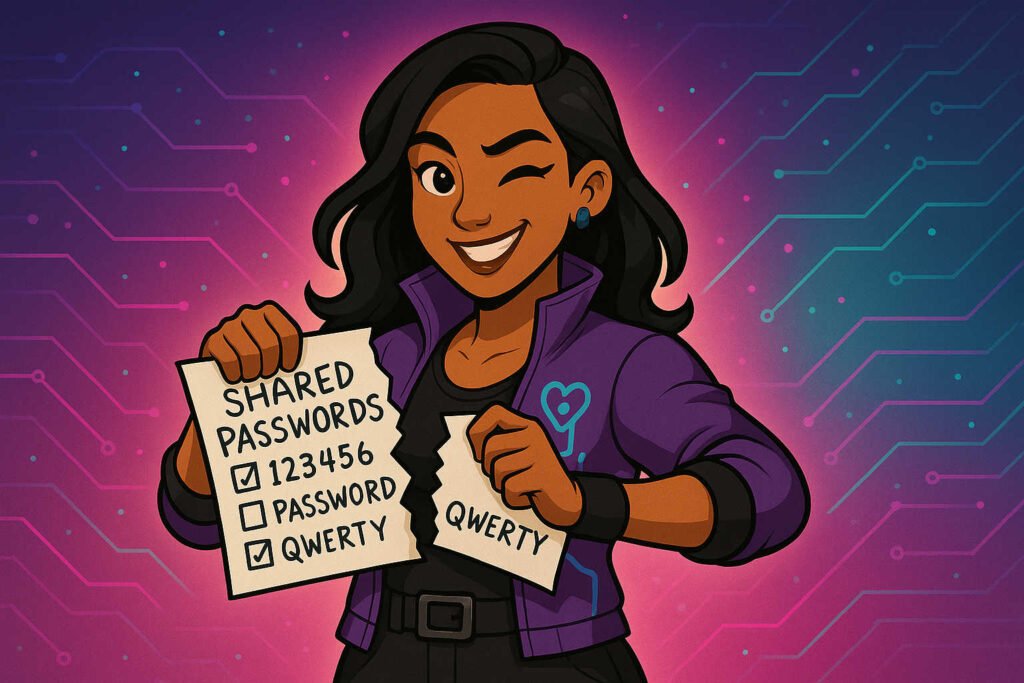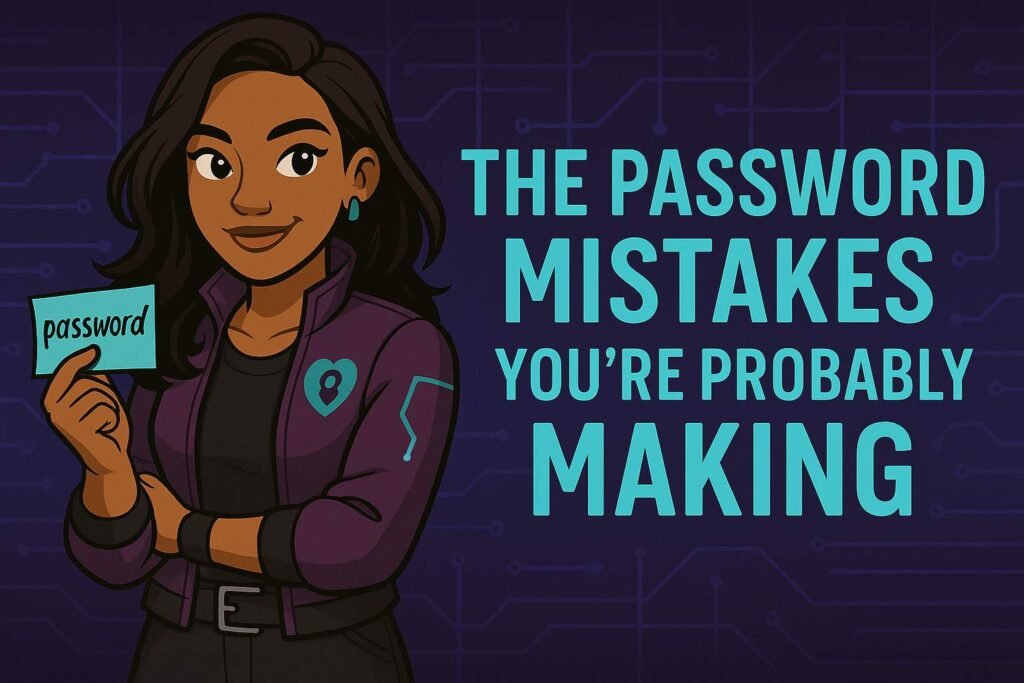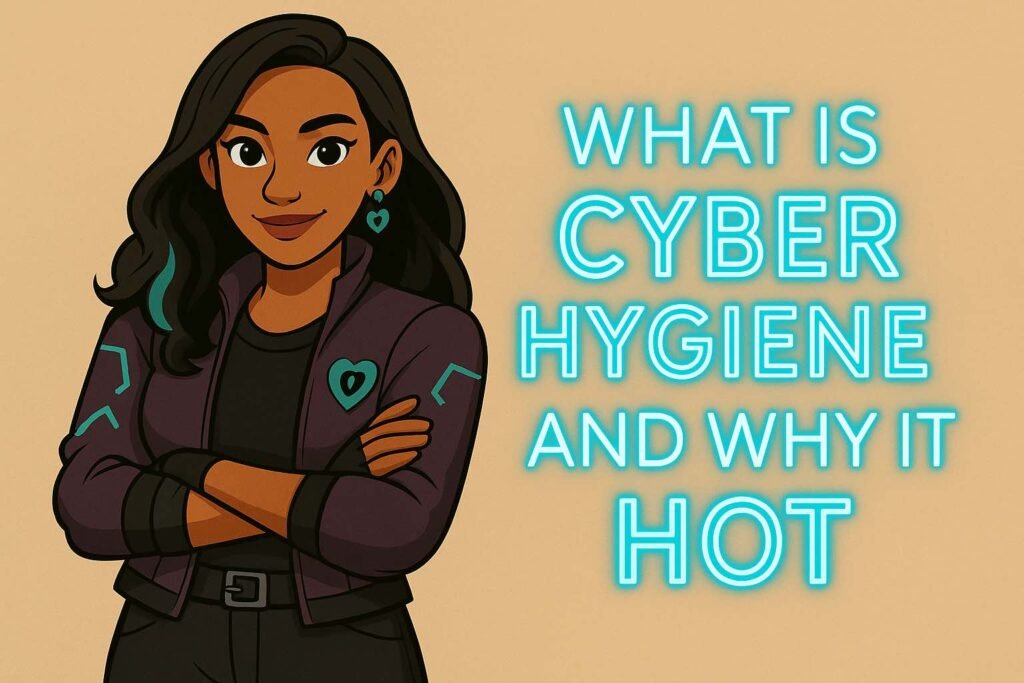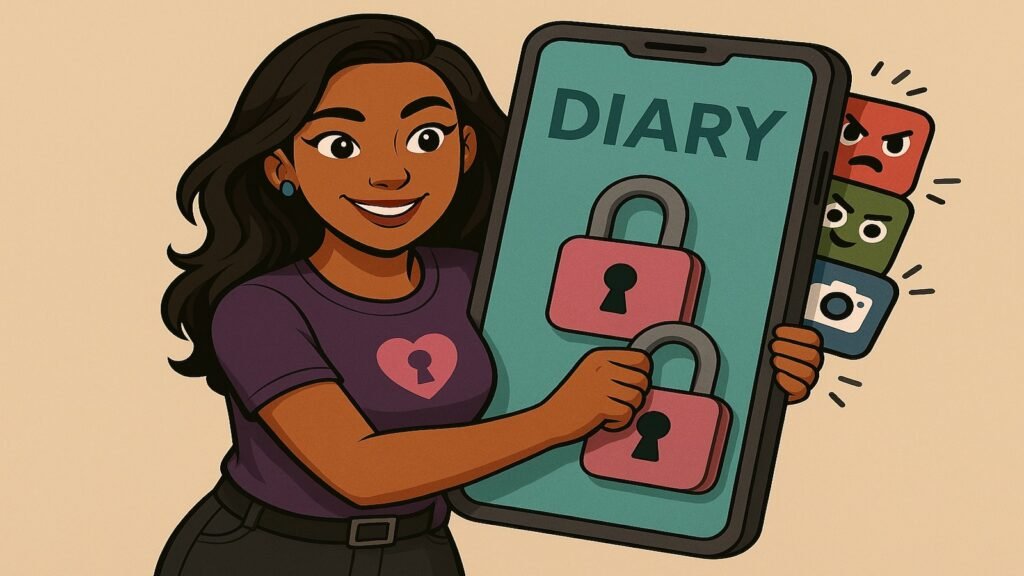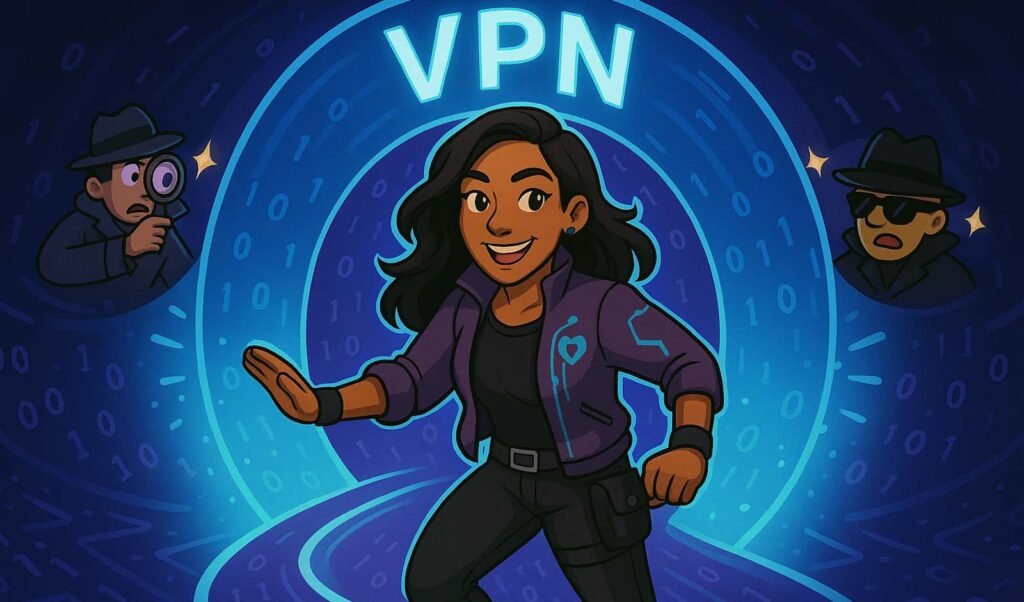“If you broke up, change the Netflix too.”
❤️ When the Love Is Over—But the Login Lives On
You broke up. You moved on. Or maybe you’re still healing. But guess what?
If your ex can still watch Netflix on your account, still access your Spotify playlists, or—yikes—still read your old texts from your cloud backup…
That’s not just awkward. That’s a digital door left wide open.
It’s time to talk about digital breakups—the kind that protect your peace, your privacy, and your passwords.
🔐 Why Shared Passwords Matter (More Than You Think)
Sharing passwords can feel intimate. It’s like a trust badge—“I trust you with my shows, my secrets, my stuff.”
But after a breakup?
- That shared Spotify becomes a silent reminder of a relationship you’re trying to leave behind.
- That access to your Google account might mean they can still see your calendar—or photos.
- That saved password on their browser? Might still get them into your email.
Even if your ex isn’t malicious, lingering access = lingering control. And you deserve better than that.
📱 Step 1: Inventory Your Shared Accounts
Ask yourself: what accounts did we use together or sign into on each other’s devices?
- Netflix / HBO / Disney+
- Spotify / Apple Music
- Instagram / TikTok / Snapchat
- Google / iCloud (email, photos, calendar)
- DoorDash / Uber Eats / ride share apps
- Gaming accounts (Steam, PlayStation, etc.)
Make a list. It might sting—but it’s the start of a clean slate.
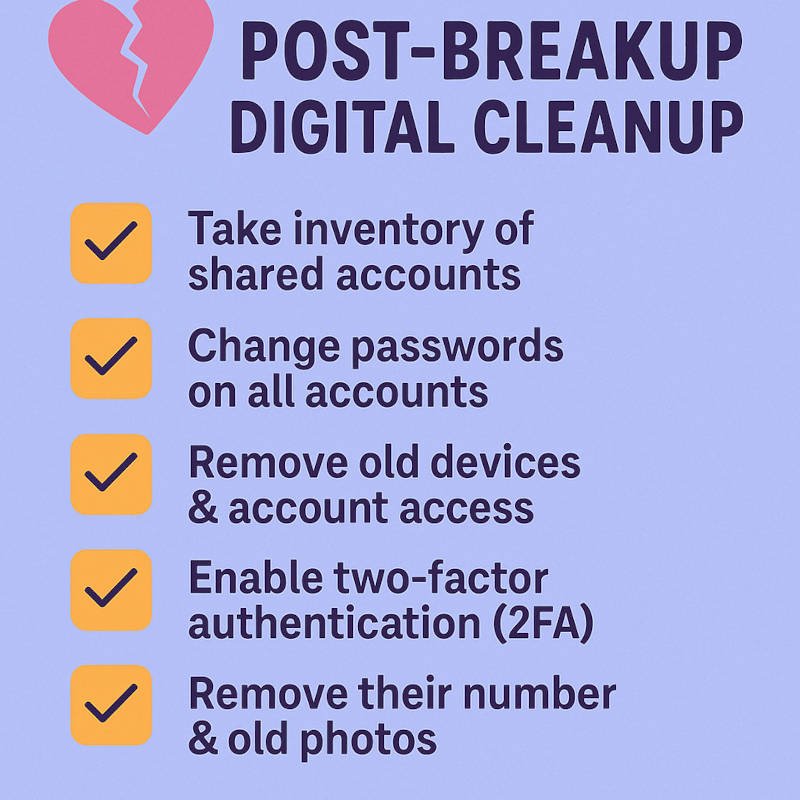
/
🔄 Step 2: Change Those Passwords (Yes, All of Them)
You need new keys to your digital house. Here’s how to do it right:
- Use strong, unique passwords for each account (not just one new password everywhere!)
- Consider using a password manager to generate and store them
- Remove devices you no longer use under “logged-in devices” or “connected devices”
- Look for “recent activity” or login history to spot weird logins
Pro tip: If you think your ex might still have access to your old text backups, photos, or notes—change your Apple ID or Google password immediately.
📱 Step 3: Enable Two-Factor Authentication (2FA)
It’s 2025. If you’re not using 2FA, what are we even doing?
2FA adds a second layer of security—usually a code sent to your phone or generated by an app. This means even if someone has your password, they still can’t get in without that second code.
- Turn it on for every important account—email, social, banking, etc.
- Use an authenticator app instead of just SMS (more secure)
🙅♀️ What If They Get Mad?
If they complain or try to guilt you? That says more about them than it does about you.
Protecting your digital life is not petty. It’s powerful. It’s self-respect.
Setting a digital boundary after a breakup doesn’t mean you’re angry—it means you’re moving on with intention.
🧹 Bonus Tips for a Full Digital Cleanse
- Remove or mute their number on WhatsApp / Telegram / Signal
- Archive photos if you’re not ready to delete—but don’t keep re-scrolling
- Clean your camera roll—especially if you shared intimate photos
- Turn off “Memories” or “On this day” reminders if they bring up pain
- Delete the shared playlist—it’s okay to make space for new vibes
💬 Digital Independence = Peace
You get to start over. On your own terms. That includes not having to think about whether someone still has a digital backdoor into your life.
Your accounts are yours. Your boundaries are valid. Your peace matters.
Cleanse your love life—and your logins. Trust me, it feels good.
Coming next: Oversharing Online—Where’s the Line?
Because posting your truth shouldn’t come with regret.
